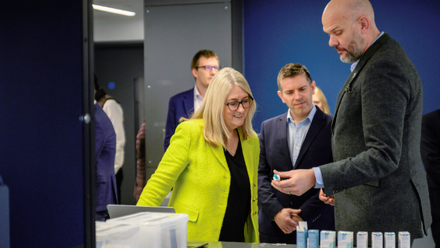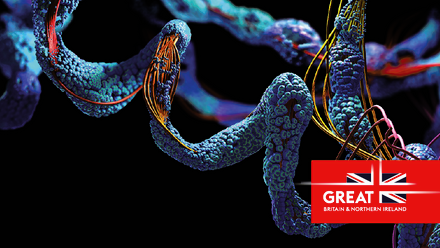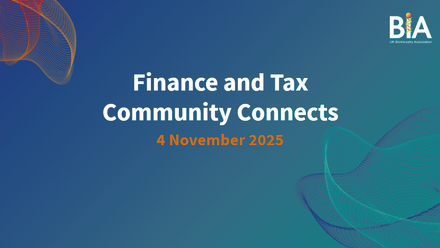CEO Update|Monday 08 June
Reporting back on an international vaccine summit, AstraZeneca moves forward with providing vaccines to the world and a high-profile endorsement of our sector’s COVID-19 work.
Last week saw international collaboration create new opportunities in COVID-19 vaccine manufacturing. The Gavi Global Vaccine Summit, hosted by the UK, not only exceeded the event’s target of raising $7.4bn, but also provided a platform to announce new collaborations between the life sciences industry and international foundations.
In a series of deals, AstraZeneca has doubled manufacturing capacity for the UK-based COVID-19 vaccine that was developed at the Jenner Institute in Oxford. A $750m agreement has been reached between AstraZeneca, the Coalition for Epidemic Preparedness Innovations (CEPI), and Gavi which will support the manufacturing and distribution of 300 million doses, with delivery set to start by the end of 2020. In addition, AstraZeneca struck a deal with the Serum Institute of India to supply 1 billion doses to low and middle-income countries, with hopes of 400 million doses being ready by the end of the year.
The agreement with CEPI and Gavi also represents the first advanced market commitment through the Access to COVID-19 Tools (ACT) Accelerator, a global mechanism co-chaired by the Bill & Melinda Gates Foundation and the World Health Organization (WHO). The mechanism will work to ensure the fair allocation and distribution of the vaccine across the world including in low and middle-income nations.
It was heartening to hear Bill Gates, co-founder of CEPI and Gavi, on BBC’s Today Programme celebrating our industry and defending life sciences against accusations of seeking to generate large profits from vaccines. Mr Gates said, “These companies are doing this to help the world — they’re not doing this because they think they can profiteer on a vaccine”. He added, “Contrary to people trying to create controversy, this is the pharmaceutical industry at its absolute best,”. Gates also noted the importance of collaboration between smaller companies and bigger life science companies to enable large-scale clinical trials and increase capacity to produce billions of doses. This is something that the BIA is encouraging through our industry-led vaccines taskforce, a diverse consortium aiming to increase UK manufacturing capability.
Test and Trace Programme
Since the launch of the Test and Trace Programme last week, the media has reported that the programme won’t be fully operational until September, with the NHS contact-tracing app expected to be in place by the end of June.
There will be a government/industry webinar this Wednesday at 13:00 providing an update on innovation in testing and an update from Pillars 3 and 4. Register here.
We have added a new challenge to our Testing Methods Sourcing Platform, which looks at how we can consider COVID-19 viral detection in respiratory or gastrointestinal virus testing regimes. We are seeking testing kits that deliver multiplexed or syndromic respiratory and/or gastrointestinal viral detection and that will operate on either existing rapid turnaround laboratory platforms, existing near patient care platforms or new technologies that can be deployed into NHS and PHE testing laboratories. Please submit your ideas here.
Migration Advisory Committee seeks views on skills shortages
In support of launching the new points-based system (PBS) for UK immigration policy in January 2021, the Migration Advisory Committee (MAC) has launched a call for evidence, asking businesses and employers to share recruitment experiences at RQF3-5, as part of a review of the shortage occupation lists. Your feedback could help provide MAC with a well-rounded picture of the current migration issues and support the evidence-based recommendations delivered to the Home Secretary in September 2020. At the end of 2019, the BIA worked across the Biotech sector to provide MAC with evidence on salary thresholds and further data which was incorporated into their response for the UK's PBS for immigration policy statement launched on 19 February 2020.
Whether an occupation is in shortage will be one of the key factors for which a migrant will be able to score points under the new PBS when it is introduced - so your feedback will be very important to identify any skills gaps at these levels. The Home Secretary commissioned MAC to consider what medium-skill occupations should be added to a UK-wide list of occupations in shortage requiring RQF 3-5 qualifications, such as Laboratory or Manufacturing Technicians. The Committee isn’t intending to ask for evidence on roles covered on the current lists where a degree or its equivalent is needed (RQF 6), as these will remain in place at this review.
If you wish to provide feedback to inform the BIA’s consultation response, please contact [email protected] before 19 June.
Events coming up
I’d like to thank everyone who attended our first ever virtual Women in Biotech event last week. It was a fantastic event with a great turnout, and I think it has shown that we can quickly adapt to the new virtual environment. There are a few other virtual events coming up over the next few weeks.
Tomorrow at 16:30 (BST) I will be making an appearance at BIO Digital during their international plenary session, where I will discuss the importance of global collaboration during the pandemic. I was pleased to be able to work with BIO on a video alongside other global leaders discussing how we are ensuring nothing stops innovation during this unprecedented time, watch it here.
On Thursday 10:00 we will be running a COVID-19 webinar focussing on what support is being made available for companies impacted by the pandemic. We will be joined by guest speakers including: Ian Campbell, Interim Executive Chair, Innovate UK; Catherine Lewis La Torre, CEO of BPC, British Business Bank; and Shanika Amarasekara, General Counsel, British Business Bank. Sign up here.
In two weeks’ time we will be hosting the Life Science Leadership Summit, a new online event for 2020 bringing together BIA member CEOs for three days of informed debate. We have an exciting series of lunchtime interviews with Annalisa Jenkins, Kate Bingham and Michelle McMurry-Heath.
Finally, I’d like to take this time to thank Niall Dickson, who is stepping down as Chief Executive of the NHS Confederation, for his great contribution to our sector. I’m sure you will join me in wishing Niall all the best in his future ventures.






